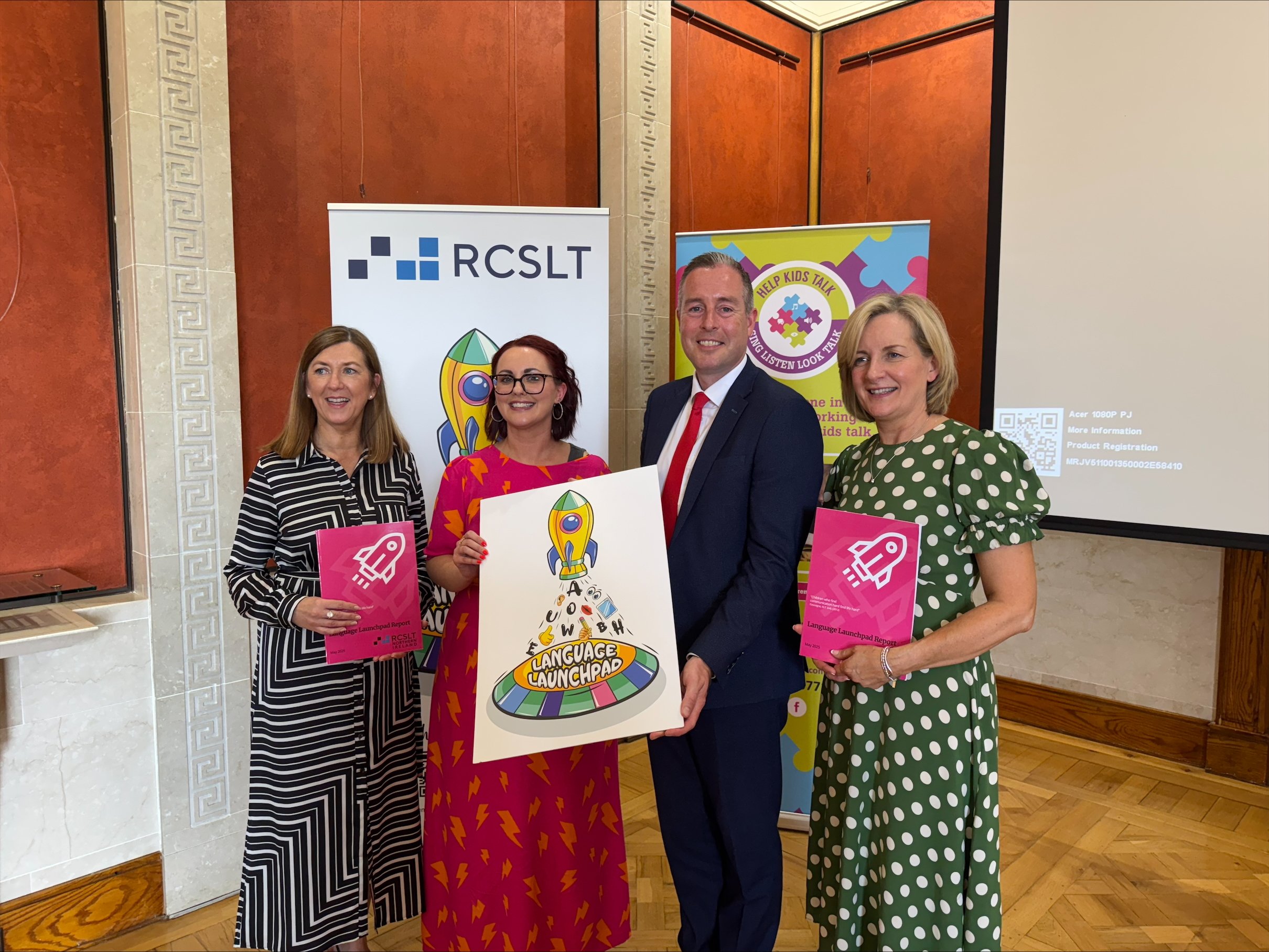Siobhan Lyons, Belfast Met Interim Director of Development and Partnerships; Sarah Welsh, Former Business Administration Apprentice and Guest Speaker; Apprenticeships Award Winner Paul McManus, Engineering Apprentice with Spirit Aero; and Damian Duffy, Belfast Met Interim Principal and Chief Executive.
Over thirty apprentices at Belfast Metropolitan College were celebrated for their exceptional achievements at the college's annual Apprenticeships Awards ceremony.
The awards, held at Belfast Met's e3 campus on Wednesday evening, brought together apprentices and their families, college staff, and employers to recognise the remarkable progress and dedication demonstrated by apprentices across the college's diverse apprenticeship programmes.
The Apprenticeships Awards showcase the talent and commitment of apprentices who are mastering their trades while gaining valuable real-world experience alongside expert training from Belfast Met's teaching staff.
Apprenticeships remain a cornerstone of a successful Northern Ireland economy, developing the skilled workforce essential for businesses across the region.
The awards reflect the wide range of apprenticeships on offer at the college, including traditional sectors such as plumbing, joinery and engineering, as well as cutting edge sectors like cyber security, pharmacy, and Data Analytics.
Speaking at the awards ceremony, Interim Director of Development and Partnerships, Siobhan Lyons, commented:
"Tonight we celebrate not just individual achievement, but the future of our local economy. Our apprentices are developing industry-leading expertise while making meaningful contributions to their employers and communities.
"Belfast Met now supports over 1000 Apprentices and Higher Level Apprentices across our programmes, each one building the foundation for a successful career while helping to address the skills needs of Northern Ireland's businesses.
"These awards recognise those who have demonstrated exceptional commitment to their professional development. Their success reflects the quality of our partnerships with industry and the dedication of our teaching staff. I'm confident these apprentices will become the skilled professionals and leaders our economy needs to thrive in the years ahead."
Award winners were as follows:
The School of Science, Engineering and Construction
Antaine McNicholl, Alarms, Professional Fire & Security (PFS)
Ewan Forsyth, Electrical, Nugent M&E
Isaac Forsythe, Performing Engineering Operations, Queen’s University Belfast
Mark Holloway, Performing Engineering Operations, John Holloway
Jake McClean, Performing Engineering Operations, Cimpina
Luke Kinnaird, Engineering, Spirit Aero
Paul McManus, Engineering, Spirit Aero
Aaron McCloskey, Joinery, Hesketh Joinery
Leon Adams, Motor Vehicle, Volkswagen Van Centre
Ewan Warnock, Motor Vehicle, Mervyn Stewart Skoda
Emmet O'Neill, Plumbing, ATS Gas
Arran Barr, Brick work, Tony Harriet
Jennifer Hunter, Civil Engineering, Department for Infrastructure
Jill Kennedy, Civil Engineering, Department for Infrastructure
Holly McColl, Pharmacy, Clear Pharmacy
Rachel Campbell, Scientific Technicians, Queen’s University Belfast
The School of Health, Wellbeing and Inclusion
Danielle Brown, Childcare, Little Rays
The School of Creative and Digital Industries
Andrew Hartland, Citi Data Academy, Citi
Alayah Verdasca, Telecoms, Department of Justice
Kerri McDaid, IT Networking, Queen’s University Belfast
Rachel Green, IT Cloud, Hallmark Solutions
Jonny Magee, IT Cloud, TP ICAP
Andrew Devonshire, IT Cyber, Danske Bank
Holden Gibson, Print, Northside Graphics
Business and Skills Department
Sarah-Jane Calvert, Providing Financial Services, Lloyds Bank
Lauryn Gordon, Business administration, NIE Networks
Michael McElhinney, Hospitality, Premier Inn
Jude Hamilton, Providing Financial Services, Citi
Aaron Lamont, Leadership and Management, PHS Group
The Belfast Business School
Angelika Dzenite, Data Management, Pacem
Georgia Abernethy, Culinary Arts, Posh Nosh
Jack Gillespie, Accountancy, Sumer NI
Nicole Cameron, Event Management, Fairytales Weddings/Northern Lights Event Hire
Aimee Mallon, Hairdressing, G&S Hair studio
Damian Duffy, Belfast Met Interim Principal and Chief Executive; Siobhan Lyons, Belfast Met Interim Director of Development and Partnerships; Apprenticeships Award Winner Paul McManus, Engineering Apprentice with Spirit Aero; Event Host Lynette Fay; Sarah Welsh, former Business Administration Apprentice and Guest Speaker; and Rachel Burns, Belfast Met Head of Department for Business and Skills.




















